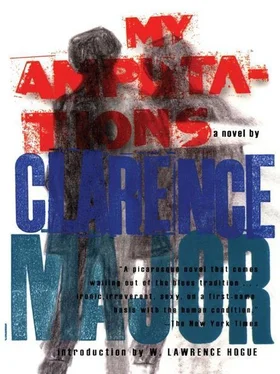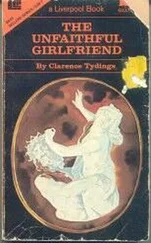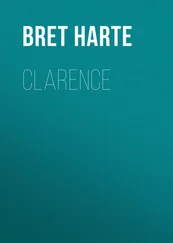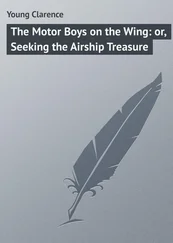Clarence Major - My Amputations
Здесь есть возможность читать онлайн «Clarence Major - My Amputations» весь текст электронной книги совершенно бесплатно (целиком полную версию без сокращений). В некоторых случаях можно слушать аудио, скачать через торрент в формате fb2 и присутствует краткое содержание. Год выпуска: 2008, Издательство: Fiction Collective 2, Жанр: Современная проза, на английском языке. Описание произведения, (предисловие) а так же отзывы посетителей доступны на портале библиотеки ЛибКат.
- Название:My Amputations
- Автор:
- Издательство:Fiction Collective 2
- Жанр:
- Год:2008
- ISBN:нет данных
- Рейтинг книги:5 / 5. Голосов: 1
-
Избранное:Добавить в избранное
- Отзывы:
-
Ваша оценка:
- 100
- 1
- 2
- 3
- 4
- 5
My Amputations: краткое содержание, описание и аннотация
Предлагаем к чтению аннотацию, описание, краткое содержание или предисловие (зависит от того, что написал сам автор книги «My Amputations»). Если вы не нашли необходимую информацию о книге — напишите в комментариях, мы постараемся отыскать её.
My Amputations — читать онлайн бесплатно полную книгу (весь текст) целиком
Ниже представлен текст книги, разбитый по страницам. Система сохранения места последней прочитанной страницы, позволяет с удобством читать онлайн бесплатно книгу «My Amputations», без необходимости каждый раз заново искать на чём Вы остановились. Поставьте закладку, и сможете в любой момент перейти на страницу, на которой закончили чтение.
Интервал:
Закладка:
He felt it too soon to crack the ice at the invisible empire, the Magnan-Rockford Foundation. Maybe just scared? What was this nonsense about needing a solid base first? Which base? More confidence? Step first into “his” old shoes, autograph a few books, speak to audiences from behind podiums? He'd been at Fifty-Two Gramercy Park North ten days before he broke down and bought himself a drink at the bar downstairs. It was in celebration of Moreparke's apparent trust and belief. Cool, but stay on your toes: bob like a buoy: because there's always the chance The Impostor might turn up, a-and, and what if Brad fucks up, Jesus squeals… The word is deep cool: swing low, sweetly. You got shoes, I got shoes. The Impostor could try a hoax. Mason sipped the White Horse hearing the rich click of ice against glass. He smoked a Camel. Hadn't it happened to Barthelme? Somebody published stories under his name. The real Barthelme got wind of it; asked the guy to stop; wrote a letter to The New York Times Book Review , denying authorship. And what about that guy who claimed to have collaborated with Howard Hughes on that autobiography? April fool! Simple Simon! Watch out for the trap-door! Pay attention: in a day or two, John Moreparke'd said, he might have a tentative tour outlined. They could discuss it. Moreparke felt the MRF grant'd given the writer enough recent publicity to make a domestic tour possible: people were interested in winners, in money. (“Are you with us Mister Mason?”) Two protein-fed guys who were participants at the annual convention of organic chemists working in the polymer field were talking shop two iron stools down. Mason'd seen the banner out in the lobby. A bespangled husband and wife with a purse the size of a canoe, farther along, were drinking gin in blue silence. All realistic. All over fifty. Mason finished his drink. Back upstairs in his large room, with sitting room and French shutters, he sat himself down again at the cold, infernal machine. This he called moving on. Time. From day one till this circlet of anxiety he'd felt the uncharitable end — which, though, he could now reason, was only a transition, was still an end. The jammed-up feeling of having to move on, to flail against the quickly located details… Everything continued to change: Moreparke's itinerary for Mason: unpromising programs at: University of Maryland; Howard University; Brooklyn College; Sarah Lawrence; University of Washington at Seattle; University of Colorado at Boulder. Miss Mufinsnat, a scarecrow with bug eyes, had neatly typed out the schedule, complete with names and numbers of hosts on twenty-five percent rag. Mason in jeans and sports jacket picked it up from John (it was John now “please”) who was, bless his gut, a water buffalo in a suit. In defiance of “man” Mason pushed his way through the crowd at Kennedy. He was doing the “Big Foot Jump.” With his new leather carry-on, he found twenty-eight C, Smoking. The gray-haired man next to him was reading In Defense of Man . The taxi out was smooth. That picture of the horsefaced woman on John's desk? Cowie Junior's daughter. And Miss Mufinsnat a cousin of the Cowie's. One of the top three of its kind, old grandpa Cowie, who started the business in 1895 had died in 1931 when Junior was twenty-five. Mason stroked his lapel at his curious good luck. Yet there were worries: what was left of the hundred thousand — most of it — was not in a safe place: (locked in the trunk of the VW bug he'd bought after the hit) but taking the chance was part of his so-called defiance. The beetle was itself in a garage two blocks north of the Gramercy, parked in a dark corner three stories below the sidewalk. They were ascending now. Now they were up. All was well. Now they landed at National. February cold: damp, freezing. The taxi to flat, bleak College Park was being driven by a brown-skinned man with weepy eyes and freckles. He kept watching Mason in the rear-viewer. What puzzlement. Looking out, Mason imagined he was in Africa, in a big industrial city: the faces along the sidewalks and at intersections waiting to cross were saffron nutmeg black ivory with an occasionally pink or ivory white. And government buildings with massive columns, clusters of shopping areas. Traffic was sluggish. A membrane lampglow over everything. Early evening drizzle. Miserable shit weather. The last time he'd been here was during Martin Luther King's famous March on Washington. He'd gotten sick from the spoiled mayonnaise on his salami sandwich. Now Mason (free of his guns) felt as “clean” and “respectable” as he had in those days: as credible. He certainly looked like a person of respect and position. In a way, this pigtail-jerker was flying “home.” Like Lionel Hampton, like Ellison's character in the short story. Home, surely was that profound and elusive. How could it be otherwise? It was not the heart of darkness: not completely: not color: not completely. Not place. He looked out again at his dark people along the sidewalk. My people? No confetti floated over the city as he arrived. As the cab inched its way, in bumper to bumper traffic, on the Belt, he looked over through the trees and saw what he imagined to be the lights of Georgetown. O spirit of Toomer, stay, give me comfort, direction, in this chaos! (That night Mason rigged up a branding “iron”—made of a metal E on a key-chain and an M on a tie-clasp. He branded himself with this emblem: M/E . Almost passed out. Later, in the mirror he thought the view of his chest impressive.)
The campus — he would later discover — was typical: young people with pink or white or gray or olive faces and soft hands, carrying strapped to their backs packs and wearing synthetic green or blue or brown jackets and blue jeans and black or brown scuffed boots. That's it. They walked carefully on dirty January icy and snow-packed sidewalks. Buildings: red, sturdy: cold brick, abstract: indifferent. One could imagine green in the Spring. A tree, perhaps a row of trees along certain campus roads. The deadness of winter now clamped the campus in its mouth like a man with a smokeless pipe clamped between his calm teeth. (Men with pipes in their mouths remind me of dogs fetching things.) His host met him where the taxi stopped — all prearranged. She was all smiles. She led him now to her office. They sat for a half hour. They kept attempting to break the silence at the same time. Embarrassed, Mason looked over his lecture notes. Then to the lecture hall. Students coming in. After the host introduced him, Mason stood in front of the podium. I'll spare you the whole bit but you've got to get the drift: “Thank you,” he said, “I come here with my life before you: I am a writer whose muse ran off. I'm just beginning to find myself on my own. I want to speak to you about my new effort to recreate myself… ” the most interesting reference he made was to something he described as “self betrayal.” Anyway, the “body” of his talk would make you hit the ceiling. And I like you too much for that. The questions were a curious set: “Did you write a book called Native Son? ” “No? How about Invisible Man? ” “Are you the author of Miss Jane Pittman? ” “If you're so terrific how come I never heard of you?” “Do you know Toni Morrison? How about James Baldwin? What're they like?” “Do you make a lot of money?” “Why not?” Clear he wasn't getting the red carpet here: nobody's said the chairman was throwing a big reception. (Oh, even Mason — who'd never been inside a university building before — knew the routine.) After dinner with Edna Coddington, his host, at a two-star Italian restaurant, he and she were pretty smashed: ready to hang out the laundry. By the end of dinner it was clear she'd been the only one interested in having him there. She liked his work. In the little sputtering car, they tried to warm each other by kissing, rubbing each other's hands — giggling together. Cold but not a dry run. Then she got the engine going. She was driving him to Howard Johnson's Motel down the main drag when she told him her life story: she was living with another young professor — a dope addict who was trying to screw all his female students and who was also busy trying to screw and claw his way to the top and into tenure. They had an uneasy, off and on relationship. Shared a big house in Chevy Chase. She had a daughter in high school who lived with them. The girl was really smart and would grow up to be a writer of genius. Roger? Roger. This was contact , thought Mason. Edna was up: she wanted out but Roger was violent. She was afraid. He might try to harm her. Women in her women's group told her constantly she should leave him. He was a loser. Yet her best friend told her to hang in there ’cause he helped with the house payments plus she could see other men when she wanted to anyway. And that's the way she felt now. Her analyst hadn't given any sign of disapproval. Then she had a bright idea. If he weren't anxious to turn in, they could drop by her “best friend's” place. When he said sure she reached over and squeezed his cock and balls together in one big grip of her slender hand with its long white fingers. She turned at the next light. She'd gotten her doctorate from Harvard which gave her a certain status but she felt she wasn't getting anywhere. She'd collaborated with another professor on a book called Milton's Madness: a success in academic circles. But royalties weren't coming. Her lawyer was looking into the wrong done her. She had to come up for tenure next year but there seemed little support among the old guys who ruled the department: her feminism, she said. Already she was sort of planning to leap in another direction: maybe work as an editor. Easier said then done? Or going into business (what?) for herself. Her best friend, this woman called Beth, they were going to see, had her own business: interior decorating. Gaining a name as a designer, nobody'd ground her soon. A go-getter, Beth had a birdman's-eye view of men and no man was ever going to ever again put his foot on her neck. Edna wished she could be as assertive … Beth and Jake were really wonderful: true people of the postmodern world! they didn't believe in sexual loyalty. What'd it have to do with love anyway. They loved each other and wasn't that enough? Edna's voice got higher, more defensive. She went through a red light, nearly killing a man with a dog on his shoulder. Oh, Jake was a little gloomy, kinda plastic. But he would like Beth — she was so together… Beth's and Jake's apartment building was your typical highrise in the flatlands. Typical that is till Edna and Mason got into the elevator and it started moving up. “This doesn't seem to be the same elevator. They must've put a new one in.” Mason looked at the buttons: Up. Down. Alarm. All seemed normal till he looked closer: Love. Death. Apple. Q. T. Apple? Q. T.? Underneath Q. T. was this: (“Quiet Tilt.”) Halfway between three and four the elevator groaned and stopped. The Love and Death buttons turned red. Disco music came over the intercom. A gloom shook the space: lights dimmed. Then, as though nothing unusual had happened Love and Death went out and the goddamned thing went on to four and stopped like nobody's business. Mason noticed the name plate by the door: J. and B. Marsse. Professor Coddington rang. No response. Mason felt a rising sense of frustration, uncertainty and mistrust. He blinked: a rear-end view…? Juicy…? Twisting. What was, yikes, this, t-this…? Then the door opened and they stepped inside. Nobody was there. Only a giant TV set in the center of the floor. Professor Coddington closed the door behind them. She spoke to the TV set: “Oh, Beth, oh, Jake, forgive me for stopping by like this without calling… Had I known you guys'd gone to bed so early… I — uh… What?” Edna Coddington blushed. “Are you serious, Jake?” She turned to Mason. “He says he's serious.” Edna noticed Mason's bewilderment. Mason looked like a stranger in a foreign country trying to avoid speaking to anybody because he doesn't know the language. It was giving him a headache. Stiff legs. He could hardly move. Why was his heart racing so? The professor went to the remote control and turned on the set. Immediately there were fuzzy projections of two human beings: a naked man and a naked woman. Pink, slender, handsome couple. Projected directly from the screen onto the flat surface of the floor. They were on a bed. The image had combat fatigue. Mason rubbed his eyes. They focused. Edna smiled at him. “They want us to play with them. Are you up to an orgy, my good fellow?” Bring on the sodium pentothal? Tenderness perhaps? Pity? He couldn't figure out how to react. Beth looked very appealing but, well, she was all-surface, shimmering pink film… Moments later when Mason climbed atop Beth he felt only the vibrations from the disco music which, he suddenly realized, had followed them into the apartment. When he got his cock into her, it felt as though it were pressed against the seat of a park bench.
Читать дальшеИнтервал:
Закладка:
Похожие книги на «My Amputations»
Представляем Вашему вниманию похожие книги на «My Amputations» списком для выбора. Мы отобрали схожую по названию и смыслу литературу в надежде предоставить читателям больше вариантов отыскать новые, интересные, ещё непрочитанные произведения.
Обсуждение, отзывы о книге «My Amputations» и просто собственные мнения читателей. Оставьте ваши комментарии, напишите, что Вы думаете о произведении, его смысле или главных героях. Укажите что конкретно понравилось, а что нет, и почему Вы так считаете.












